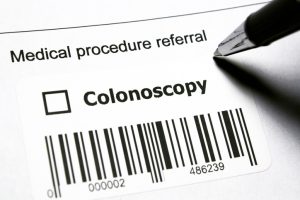European Study Confirms Value of Colonoscopy

A recent study published in the New England Journal of Medicine has generated considerable attention regarding the value of screening colonoscopy.
Unfortunately, some media reports of the results have caused confusion about the effectiveness of this preferred colorectal cancer screening method.
“The study recently published in the New England Journal of Medicine actually confirms what we have known for years — screening colonoscopy works,” said Jay Popp, MD, AMSURG Medical Staff Lead.
“It underscores the importance of not letting the headlines guide your healthcare decisions. Instead, base your decisions on facts and a discussion with your healthcare provider,” Dr. Popp said.
Screenings Effective if Completed
In the study, more than 84,000 men and women ages 55-64 from Poland, Norway, and Sweden were randomly invited to have a screening colonoscopy.
Only 42 percent of those invited to have a colonoscopy actually underwent the procedure. The study showed, however, the procedure was beneficial to their health.
“The take-home message here is that patients undergoing colonoscopy in this study had a 31 percent reduction in the development of colon cancer and a 50 percent reduction in death from colon cancer,” Dr. Popp said.
“This study shows that colonoscopy screening is effective — if it is completed. The test can’t prevent cancer if it isn’t done,” Dr. Popp added. “Adherence to screening, whichever method you choose, is the only way to prevent colon cancer.”
Dr. Popp noted the Norway study also reveals the importance of obtaining a quality exam.
“Two benchmarks that have been established and recognized as indicators of a quality exam include adenoma detection rate (ADR) and colon withdrawal time,” Dr. Popp said.
For each 1 percent increase in ADR there is a 3 percent decrease in colorectal cancer risk, according to a 2014 study published in The New England Journal of Medicine.
“About a third of the physicians participating (in the Norway study) had ADRs of less than 25 percent,” Dr. Popp said.
By comparison, the US benchmark for ADRs is 25 percent. Knowing a physician’s ADR is an important factor in selecting the specialist with whom you feel most confident performing your colonoscopy.
In this study, participants were followed for a median of 10 years.
“The benefits of colonoscopy take time,” Dr. Popp said. “To really know the benefits of screening, patients would need to be followed for a much longer period of time.”
Get Screened at age 45
Colorectal cancer is the second-deadliest cancer in the US, but it doesn’t have to be. This type of cancer is preventable through timely screenings.
Healthcare agencies recommend people at average risk for developing colorectal cancer get their first screening at age 45. The five-year survival rate is about 90 percent when colorectal cancer is found at an early stage before it has spread to other organs.
Many screening methods are available, but colonoscopy is the only screening method that can both detect and prevent colorectal cancer. The disease often begins as a growth, called a polyp, inside the colon or rectum. Through a quality colonoscopy, polyps can be both detected and removed before they become cancerous.
“Colonoscopy remains the gold standard,” Dr. Popp said, “but the best screening test is the one that actually gets done!”
Our gastroenterologists perform quality colonoscopy screenings at surgery centers around the country. Call today to schedule your appointment.
